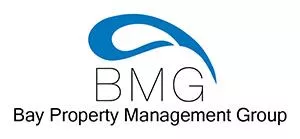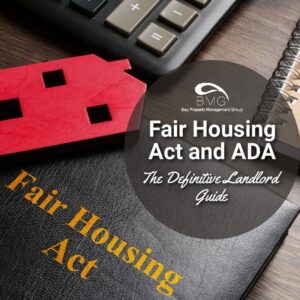Landlords and Ethical Behavior: 5 Best Management Practices
Ethical behaviors are a hot topic in the landlord community. The landlord profession, by nature, can lead you to situations where you must make difficult choices. After all, being a housing provider is a hefty responsibility. In today’s article, we’ll review some of the best practices for ethical behavior as a landlord and how to navigate tough situations that are sure to arise.
5 Best Practices for Ethical Rental Management
Being a landlord isn’t easy. However, there are ways you can find a better balance between your values and your pockets. Let’s dive into these 5 tips for ethical behavior from your local property managers in Northern Virginia below.
 1. Be an Active Community Member
1. Be an Active Community Member
Landlords have a responsibility to be active members of their community. If they do not invest in their communities, those groups will lose growth opportunities and may even deteriorate.
We caution landlords away from adopting a hands-off approach to their properties. The reason for this is that landlords are leaders, and their behavior serves as an example for other people to follow. Due to that, your neglect could breed more widespread neglect of neighborhood conditions. For example, you need to set the stage for litter being thrown out. Otherwise, people may not take the initiative to do so themselves. As a rule, people often follow what other people around them are doing. When you take the initiative, you follow the best management practices possible for landlords.
2. Increase Your Property (and Your Neighborhood’s!) Value
Garbage removal, landscaping, painting, and general appearance improvements can make an entire neighborhood’s value skyrocket. Ethical behaviors like these uplift the status of the area’s residents. Furthermore, when landlords use their platforms to spread the word about these changes, it’s not just ethical behavior: it also accelerates a property’s value growth.
Furthermore, ethical property management services could prove especially helpful in delicate, emotionally fraught cases of eviction. BiggerPockets podcast guest and landlord, Al Williamson, often had to resort to buying people out of their homes so they could leave peacefully and quickly. Many times, he would have to shell out $500 out of pocket. This wouldn’t have happened if he had a third party available. The third party could have made the ordeal as tolerable as possible for all parties.
Al also bemoaned the difficulty of looking for suitable tenants. He had to make sure each one had the means to live in his units, to avoid the pain of eviction in the first place. Or, if the tenants faced barriers to meeting the rent consistently, he had to work with them to find solutions to their financial problems. These are other ethical considerations a property management service could assist with.
 3. Rent Raises
3. Rent Raises
As economic conditions fluctuate, there will be times when you must consider raising your rental rates.
However, when your tenants face economic hardship, they deserve a little leeway. Such ethical behavior may benefit you, too. After all, a good tenant who stays at a stable rate is often better than a higher-paying tenant who is a nightmare to deal with.
If you must raise the rent, you should ensure the amount is fair by raising it to a fixed amount annually, as stated explicitly in the landlord-tenant agreement. Or you could base it on the Retail Price Index (RPI) rate of growth. This method is set on external factors, which makes the decision more neutral.
4. Alternatives to Increasing Rent
In times of economic uncertainty, it may make more economic and moral sense to not rely solely on tenant rentals for income. Many of your tenants could find themselves laid off and struggling to pay their rent. Instead, it could be beneficial to include property services that the public could use, like laundry facilities, parking spots, vending machines, storage, and other amenities. Best management practices like this could open you up to a wider pool of customers and take some of the pressure off your tenants.
Another way to cut costs is by going for group discounts on many basic services, like Wi-Fi, snow shoveling, and landscaping. With this, every individual tenant could reduce expenses. You can take a bit of the load off their shoulders, all while saving money.
It also is a good idea to hire a property management company long before your 1031 exchange. With this, you can test their worthiness by having them look for properties on your behalf. Then, you can see how they manage their portfolios to see if they’re a good fit for you.
 5. Tenants with DSS or Housing Benefits
5. Tenants with DSS or Housing Benefits
Certain landlords may be hesitant to lease units to tenants who use housing benefits to pay their rent. In fact, some landlords may go as far as to explicitly forbid DSS or housing benefit tenants in their advertising. They may do this out of concern that tenants will not pay their rent.
However, it is illegal to discriminate against a potential tenant based on their source of income in Virginia. Similarly, it’s not an ethical best management practice. Even if these landlords have neutral intentions, such statements can have an unintended negative impact. After all, many low-income tenants are in precarious financial situations because of circumstances outside of their control, like domestic violence and other forms of abuse. That’s why landlords should consider low-income tenants the same way as other tenants.
On a practical level, too, this ethical behavior can have a financial payoff. People who would otherwise struggle to secure housing can be exceptionally loyal tenants because they appreciate the value of your unit. Additionally, they may be more compliant, rule-abiding tenants. It’s a win-win.
Third-party professionals, like property managers, can help you sort out verification details like security deposits and background checks to ensure the person is the real deal.
Let BMG Handle Your Ethical Considerations
There are no two ways about it: it is incredibly stressful to make decisions that change people’s lives all on your own. The pressure of ethical considerations and ethical behaviors can be overwhelming. Luckily, you don’t have to go at it alone. In fact, there are professionals out there who can carry out the hard work for you. Property managers are known for their oversight of the issues that plague landlords. They know the best practices necessary to handle rent collections, evictions, and other common problems in an ethical, yet efficient, manner. Contact us today to make being a landlord infinitely easier.



